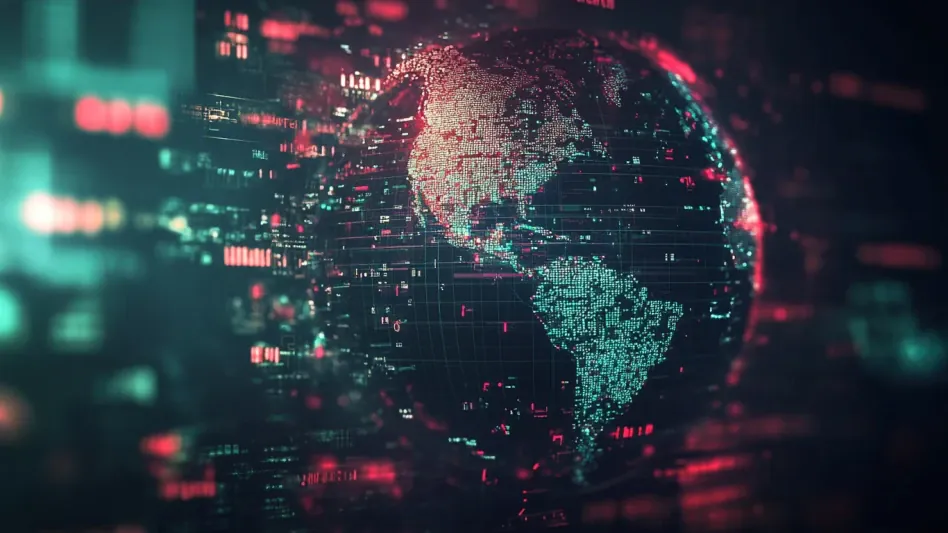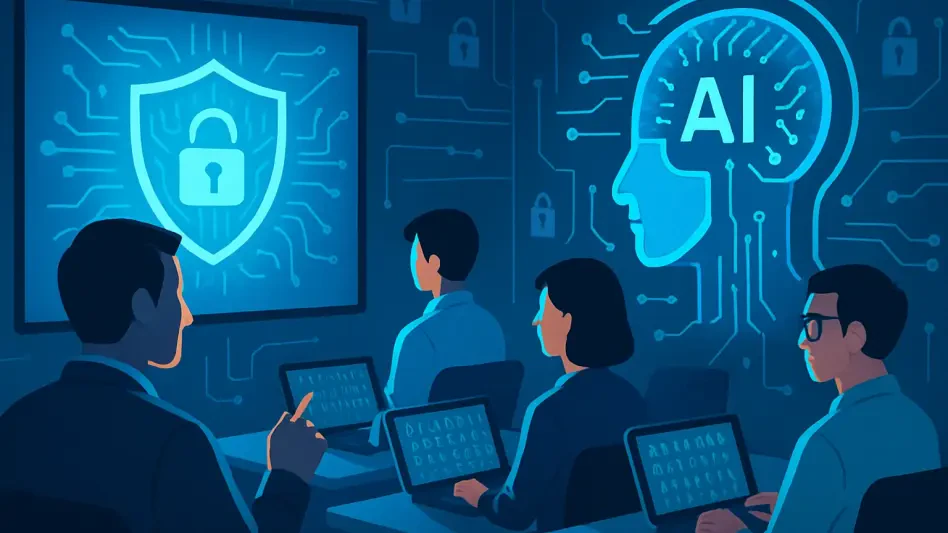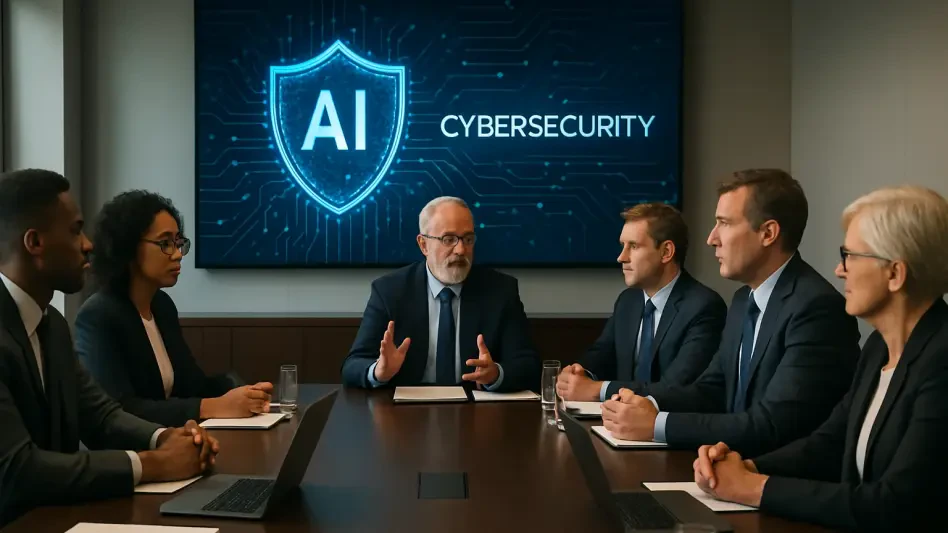Modern technology has ushered in an era where hacktivism profoundly influences the dynamics of global geopolitics and cyber warfare. As the digital age advances, the ability of hacktivists to impact international relations, national security, and economic structures has escalated significantly. This evolution introduces a new layer of complexity to global security, leveraging the cyber realm to extend and intensify conflicts.
Blurring Lines Between Traditional and Cyber Warfare
In a world where conventional military strategies and diplomatic negotiations once dictated international relations, the emergence of cyber tactics has reshaped the battlefield. Cyberattacks introduce conflicts into the digital realm, where hacktivists become formidable players, complicating the delicate balance of geopolitics. The integration of cyber warfare into military strategies has significantly transformed national security, making it a precarious endeavor fraught with new challenges.
In this evolving landscape, hacktivists, operating both independently and in conjunction with state-sponsored initiatives, now play a pivotal role. Their actions demonstrate that the battleground has expanded beyond physical territory into the vast expanse of cyberspace. As traditional physical conflict zones become increasingly interconnected with digital operations, countries must develop dual strategies to counter both physical and cyber threats. This dual specter creates a complex scenario where defending national interests requires multifaceted approaches integrating both military prowess and cybersecurity capabilities.
The Impact of Cyberattacks on Geopolitical Conflicts
A recent cyberattack on the platform X (formerly Twitter) offers a vivid example of the opaque and challenging nature of cyber warfare. Traced to a Ukrainian IP address, this attack raises significant questions about the true identities and intentions behind such operations. Whether driven by rogue actors, state-sponsored agendas, or external disruptors, the ambiguity surrounding the source of cyberattacks complicates international relations immensely.
This incident underscores the difficulty in attributing cyberattacks accurately, as tactics like IP spoofing and false-flag operations blur the lines of accountability. The resultant ambiguity fosters mistrust among nations, complicating diplomatic efforts and making it difficult to hold perpetrators accountable. The murkiness inherent in cyber warfare means that states and organizations must enhance their forensic capabilities to reveal the true origins of attacks, thereby mitigating the fallout and facilitating a more straightforward response to such incidents.
Hacktivism in the Russia-Ukraine Conflict
The ongoing Russia-Ukraine war provides a stark illustration of hacktivism’s growing influence on geopolitical scenarios. Groups like Anonymous and the IT Army of Ukraine have taken an active role in the cyber aspect of the conflict. These non-state actors highlight the ideological motivations driving hacktivist movements and their capacity to shape geopolitical outcomes. Their activities demonstrate how hacktivism can transcend state boundaries, harnessing a global network of supporters to achieve their objectives.
Hacktivist endeavors in the Russia-Ukraine conflict underscore the ideological dimensions of cyber warfare, where actors pursue goals beyond national interests. This multifaceted motivation contributes to broader global security concerns as it blurs the lines between state and non-state actors in conflict scenarios. The participation of ideologically driven groups complicates the traditional frameworks of international relations, requiring states to adapt their strategic considerations for the new, digitally intertwined world.
False-Flag Operations and Cyber Misdirection
False-flag operations have become a prominent and effective strategy in the arsenal of cyber warfare tactics, especially in the context of Russia’s use of its Advanced Persistent Threats (APTs). These operations are designed to sow confusion and manipulate global narratives, enabling strategic objectives to be achieved without direct attribution. By creating the illusion that cyberattacks originate from another source, false-flag operations disrupt alliances and obscure the real threat.
The strategic deployment of false-flag operations and cyber misdirection complicates the process of attributing attacks accurately, diverting attention and resources away from genuine threats. As a tool of disruption, these tactics not only confound forensic efforts but also lead to a breakdown in trust among global actors. This lack of trust undermines cooperative security measures and can lead to a fragmented international response to cyber threats, ultimately benefiting the originators of these deceptive operations.
The Broader Cyber Threat Landscape
Hacktivism and cybercrime extend beyond high-profile geopolitical conflicts, posing persistent and widespread threats to global security. The pervasive nature of cyber threats impacts a diverse range of targets, from governments and major corporations to ordinary individuals and small businesses. Recent incidents involving ransomware attacks and phishing schemes serve as stark reminders that no entity is immune to cybercriminal activity.
The evolving landscape of cybersecurity challenges underscores the need for vigilant and adaptable defensive measures. As cybercriminals and state actors refine their tactics, so must the defenses employed to counteract these threats. This continuous evolution requires robust investment in cybersecurity infrastructure, alongside public awareness campaigns to educate individuals and organizations about best practices for digital security. By fortifying these defenses, societies can better protect themselves from the multifaceted dangers that the cyber domain harbors.
Recommendations for Mitigating Cyber Threats
Addressing the myriad cyber threats requires a multipronged approach. Developing and implementing advanced attribution mechanisms is essential for reliably tracing the origins of cyberattacks. Without accurate attribution, response strategies are undermined, allowing false-flag operations to persist unchecked. Enhanced digital forensic tools and international cooperation are pivotal in improving the ability to attribute cyber actions accurately and swiftly.
Moreover, creating international treaties and agreements modeled on nuclear arms control frameworks would help govern cyber warfare more effectively. Such treaties should include measures for cooperation, regulation, and enforcement, providing a structured response to the dangers posed by both state and non-state cyber actors. International collaboration in this area is crucial for establishing norms and deterring malicious activities in the digital realm.
Enhancing public awareness and cybersecurity education is another critical element in the fight against cyber threats. By educating the public, businesses, and governments on fundamental cybersecurity practices, a more informed and vigilant society can emerge. This collective vigilance can significantly reduce the likelihood of successful cyberattacks and contribute to overall national security efforts.
Government investment in cybersecurity infrastructure is imperative, particularly for nations at the forefront of cyber conflict. Recognizing and treating cybersecurity as a core element of national defense will bolster resilience against emerging threats. By prioritizing investments in this area, governments can ensure that their cyber defense mechanisms are robust and capable of countering the advanced tactics employed by cyber adversaries.
Evolving Threats and Strategic Resilience
Modern technology has ushered in an era where hacktivism significantly influences global geopolitics and cyber warfare. As we progress into the digital age, the capability of hacktivists to affect international relations, national security, and economic frameworks has surged dramatically. This technological evolution adds a new layer of complexity to global security, utilizing the cyber domain to expand and deepen conflicts. Hacktivism, as a form of digital activism, now plays a critical role in how nations interact, compete, and protect themselves. Its impact is not confined to mere data breaches; it can sway political outcomes, disrupt economies, and even provoke diplomatic tensions. The nature of these cyber campaigns often transcends geographic boundaries, making it a formidable force in the modern world. Governments and organizations must remain vigilant, adapting to the ever-evolving tactics of hacktivists to safeguard their interests and maintain stability on a global scale. This dynamic underscores the need for robust cybersecurity measures and international cooperation in the face of growing digital threats.





